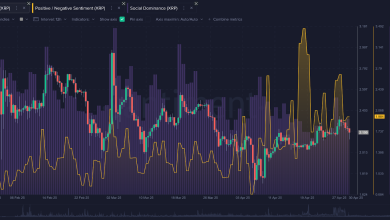Why Bitcoin is Still Dragged Through the Mud: Criticism, Conspiracy Theories, and the Ignored Innovation

Bitcoin is much more than just digital currency – it is a revolutionary concept that could fundamentally change the global financial landscape. However, instead of being celebrated as a technological innovation, Bitcoin is often criticized and linked to conspiracy theories. So why is it the case? Why is a technology that can revolutionize the financial world so often dragged into the mud?
Fear of the unknown
Most people have only a superficial understanding of Bitcoin. Although blockchain technology behind Bitcoin trains the basics of a revolutionary change in the financial sector, it is also complex and difficult to grasp. In a world still dominated by traditional institutions and banks, Bitcoin represents a threat to the established order. There is no central authority regulating the market and transactions are carried out anonymously. For many, this decentralization signals uncertainty and danger, leading to distrust and skepticism about technology.
Fear of losing control
Another reason why bitcoin is often rejected is the fact that it removes control of traditional financial systems. Banks, central banks and governments lose their ability to intervene directly in the financial markets via Bitcoin and similar cryptocurrencies. These institutions have experienced decades of public trust and are not impatient to give up their power. Consequently, Bitcoin is often perceived as a threat to the existing system, causing criticism and the spread of disinformation.
Conspiracy theories and false stories
In addition to criticism, Bitcoin is frequently associated with conspiracy theories. Some claim that Bitcoin was created by secret elites to destabilize the financial system or to control the global economy. Others accuse Bitcoin of being a tool for illegal activities, as it offers anonymity and transactions are difficult to trace. These stories are often propagated by those who have a direct interest in preventing the generalized adoption of Bitcoin.
In addition, there are many speculations on the identity of Satoshi Nakamoto, the mysterious creator of Bitcoin, and some suggest that Bitcoin is part of a global conspiracy. These theories create a mysticism around Bitcoin which is not necessarily based on facts, but rather on fears and uncertainties.
Volatility as a weapon
Bitcoin is known for its extreme price fluctuations. In recent years, the price of bitcoin has experienced dramatic overvoltages and just as dramatic accidents. This volatility is often used as an argument against Bitcoin – criticism qualifies it as “speculative” rather than stable money. For many, it is difficult to invest in such an unpredictable market, and Bitcoin is rejected as risky and unreliable.
The quiet revolution
Despite generalized criticism and the negative attention of the media, Bitcoin remains one of the most important technological innovations of our time. Blockchain technology that feeds Bitcoin offers a transparent, secure and effective means of making transactions. This technology has the potential to revolutionize not only the financial sector, but other industries such as health care, logistics and supply chain management.
However, rather than being celebrated as such a technological breakthrough, Bitcoin is often considered a threat. It is time for society to move its perspective on Bitcoin and to recognize the technological progress that this cryptocurrency represents. Although Bitcoin will probably continue to have its criticisms, there remains a fascinating example of how new technologies can contest and transform existing systems.
Conclusion
Bitcoin stands on the edge of a revolution. But to understand this, we must go beyond the misunderstandings and the fears associated with it. Instead of focusing on conspiracy theories and false stories, We have to recognize technology behind Bitcoin and its potential as the basis of a new era of financial innovation. Perhaps one day, bitcoin will not only be considered a speculative investment, but also celebrated as one of the most important technological achievements of the 21st century.




